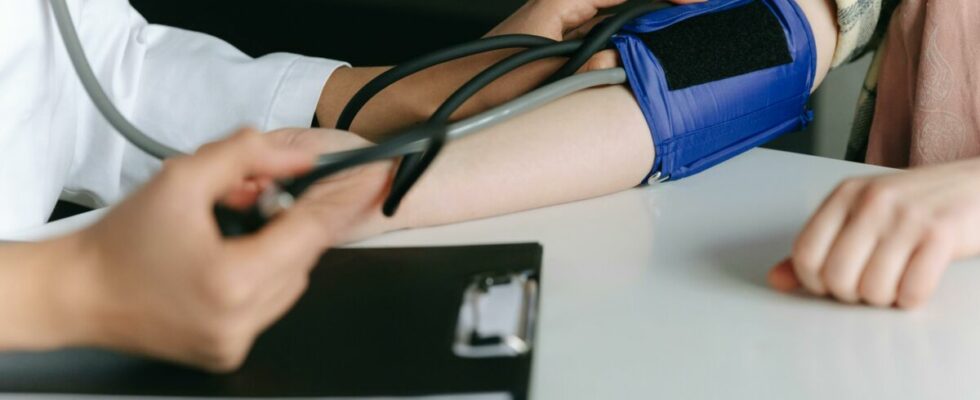At your last appointment, your doctor found you had abnormally high blood pressure. “We speak of abnormal tension or pressure when the high value, or systolic blood pressure, is greater than 14 cmHg and when the low value, or diastolic blood pressure, is greater than 9 cmHg in consultation.”, explains Professor Gérard Helft, professor of cardiology and president of the French Federation of Cardiology.
Measured at home – as is recommended to avoid the “white coat” effect – it should not exceed 13.5 cmHg systolic pressure and 8.5 cmHg diastolic pressure. To calculate it, the specialist recommends having a blood pressure monitor and practicing the “3×3” rule: measure your blood pressure three times in the morning, three times in the evening, for three days. It is the average of the 18 results which indicates the blood pressure level.
High blood pressure: what are the different stages of hypertension?
The specialist distinguishes three grades of high blood pressure :
- Grade 1, when the systolic pressure is greater than 14 cmHg or diastolic pressure greater than 9 cmHg;
- Grade 2, when the BP is greater than 16 cmHg or diastolic pressure greater than 10 cmHg;
- Grade 3, when the BP is greater than 18 cmHg or diastolic pressure greater than 11 cmHg.
How to lower high blood pressure?
Professor Helft recommends adopting six health and diet rules in the case of excessively high blood pressure, which may initially be sufficient to normalize grade 1 hypertension:
- Reduce your salt consumption;
- Practice regular physical activity;
- Lose weight if you are overweight;
- Reduce alcohol;
- Increase your consumption of fruits and vegetables;
- Stop smoking.
Secondly, a biological assessment is carried out in order to discover the identifiable causes of this hypertension, and to prescribe antihypertensive treatment if it is confirmed and persists despite the hygienic and dietary rules.
Abnormally high blood pressure: should you consult urgently?
“High blood pressure alone is not a reason to seek emergency care or go to the hospital.”, specifies Professor Gérard Helft.
If abnormally high blood pressure must be monitored regularly by your doctor, it is above 18 cmHg for systolic pressure and 11 cmHg for diastolic pressure that it is important to be more concerned about it quickly. First we must take more blood pressure measurements in the following hours and days and inform your doctor of the average of the blood pressure figures.
Only in the event of worrying and fairly serious clinical signs does the cardiologist recommend going to the emergency room, particularly in the event of heart failure, shortness of breath or confusion.
Thanks to Professor Gérard Helft, professor of cardiology and president of the French Federation of Cardiology.
